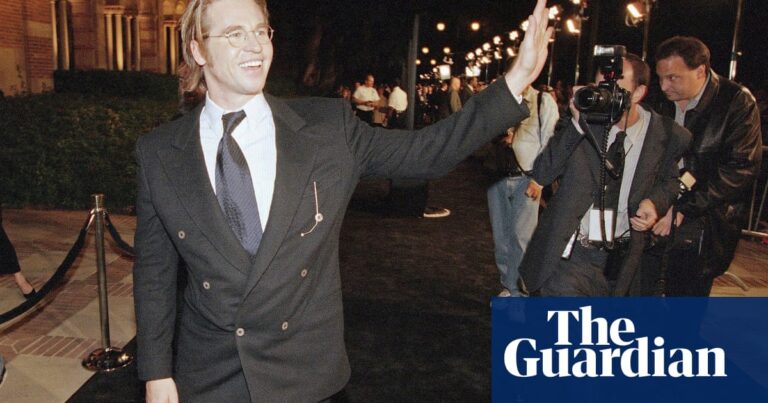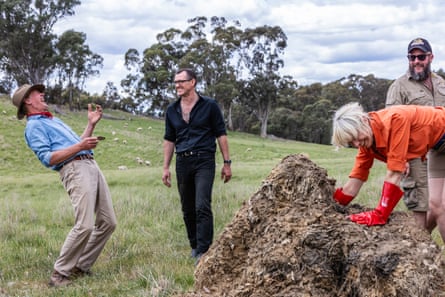M
Filming a movie in Haiti is a challenging task, as evidenced by director Gessica Généus. Despite starting production on her 2021 film, Freda, in late 2019, the country was in the midst of the Petrocaribe street protests. These protests were sparked by a major scandal involving Venezuelan oil, resulting in the disappearance of billions of dollars.
During the months of December 2019 and January 2020, she continued to work. At one point, she was filming while there was gunfire outside the nightclub where she was shooting. This caused worried phone calls from the families of her actors.
Généus’s upcoming project, set to start filming in Jacmel, a port city, next year, may begin during the heightened turmoil in the Caribbean nation following the assassination of President Jovenel Moïse by armed mercenaries in 2021.
Currently, various factions control significant portions of the nation. There has been an increase in vigilante murders. The most promising solution for reducing this violence could be a United Nations intervention, with Kenya offering to take the lead.
Généus recognizes that production companies have been cautious about filming in Haiti due to the potential risks. I shared an incident from my recent trip to Haiti in December 2019, during which Freda was filming, where a French couple was murdered after being followed from the airport. Généus explains how this event almost led to her production funding being revoked.
Généus describes her familiarity with the pattern of violence in Haiti over time, recalling her upbringing in neighborhoods similar to Freda’s.

“I urged the producers in France to take action immediately, as I feared the violence would escalate. I am not willing to take the risk at this time. There is a strong desire for violence that I cannot comprehend.”
Despite the challenges encountered by Généus and her team in the production of Freda, it is an exceptional film that often presents ambiguity and avoids clichés.
The movie tells the tale of a household living in the Lalue district of Port au Prince. The main character, Freda, is named after a voodoo goddess associated with wealth and sensuality. She is a student at a university where the instructors often do not show up, leaving the students to discuss the issues facing their country and potential solutions.
Jeannette, the mother of Freda, is based on Généus’s own activist mother and is portrayed as a distant figure. She runs a small shop and struggles to bond with her children. Esther, Freda’s sister, is in a relationship with a senator who is abusive but could possibly improve the family’s financial situation.
The main conflict centers around Freda. The film starts with her revealing that her mother’s boyfriend had raped her in her own home.
Given the opportunity to depart for the Dominican Republic alongside her disenchanted partner, a struggling artist who recently sought medical attention for a gunshot wound sustained while lying in bed, she must grapple with the decision of whether to remain in Haiti and the reasoning behind it.
This inquiry is a significant presence throughout the film, mirroring the director’s discussions with her friends. There is a persistent curiosity about who will be the next to “go to the airport”.
Généus, who resides in Haiti for half of the year, admits to facing difficulty with Freda’s question.
“I strongly relate to this film for this reason. Whenever I am in Haiti, I always question my purpose here. My viewpoint, along with my friends’, is progressive and feminist. I cannot comprehend how a woman can choose to remain with a man who abuses her. However, I have similar feelings towards Haiti.”
“Aggression is ingrained in our way of living. Despite its unsettling nature, my time in Haiti has greatly influenced me.”
Freda’s disillusioned artist boyfriend, Yeshua, embodies the challenges of creating art in Haiti.
Numerous artists, including those in the film industry, have not had the opportunity to showcase their work beyond Haiti. I do not believe it is my place to question whether or not I can film in Haiti. In such situations, I will refrain from discussing Haiti.
“I would prefer to take my own life than film scenes in the Dominican Republic portraying Haiti. However, the distinction is that I have connections to a producer and financial resources outside of the country.”
Reworded: Généus attributes her access in Haiti to her fame as an actor, which she gained from her role in Richard Sénécal’s Barikad (Barricade) two decades ago. She believes that her celebrity status has aided in removing any barriers she may have faced while working there.
Surprisingly, Généus uncovers a perilous concept of liberty within Haiti’s chaotic state that she perceives as confining.
“I know it may sound pretentious, but I have long been fixated on the concept of freedom. Growing up watching American movies, I associated freedom with running in vast open fields on large plots of land.”
Ignore the promotion for the newsletter.
after newsletter promotion
I have examined my own nation and have gradually realized, through much difficulty, that this is a manifestation of freedom.
For a lengthy period of time, we have been independent and responsible for our own well-being without the support of a governing body that prioritizes the needs of its people.
I desire for us to comprehend that this immense liberty is contributing to our downfall.
Due to the lack of protection and safe spaces, we have been unable to create anything from our unique perspective.

Freda discusses numerous obstacles that contribute to the perceived difficult nature of life in Haiti, including extreme poverty, corruption, violence, societal disparities, and exploitation by foreigners. However, she also presents a more positive and hopeful perspective on Haitian society and culture.
Généus explains that the scenes captured in a Port au Prince nightclub exemplify this unique perspective on Haiti. She wanted to portray individuals continuing to live their lives and showcase the significant impact of intimacy. Despite facing challenging and nearly impossible circumstances, people must still make choices, and this is something Généus is particularly interested in.
“For me, the Freda in the film is the woman who has gone through this traumatic experience. She was raped in the place where where she lived. And she rebuilds herself. I called her Freda as a reminder that you can reclaim beauty from what is ugly. She represents the one who is standing up.”
Généus’s upcoming movie will explore the dynamic between a minister’s son and a prostitute in Haiti’s tumultuous environment. She will have to navigate the country’s volatile turmoil while making the film.
While most of the crew will fly from Port au Prince to Jacmel, the heavy equipment will have to travel on roads that are at present dotted with gang-controlled checkpoints. Whether or not those gangs will still be in control when that journey happens will depend on the success and timing of the Kenyan-led anti-gang intervention.
Gangs are constantly draining us, leaving us exhausted and unable to strategize for our own protection.
“That is the issue that must be examined in Haiti. It is my main focus. How can we uncover the root of this problem?”
I often turn to my mother for guidance when I have these questions. She was a passionate activist, and I would wonder how she coped with the possibility of not seeing the change she fought for. I wanted to understand how one can continue living with such a burden as a human being.
Upon reflection, I came to understand that cinema has the ability to provide insight into the complexities of humanity and its questions. This is the direction I wanted to take with Freda – to delve into the grey and intricate aspects of life. It is this exploration that keeps me going.
The Barbican in London will be hosting the Visions of Haiti season from October 18-31. On October 28, there will be a screening of Freda.
Source: theguardian.com



















